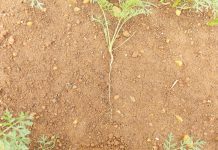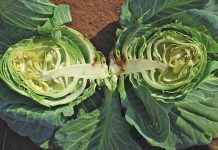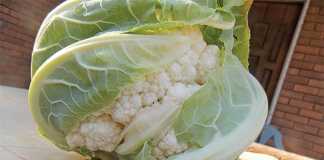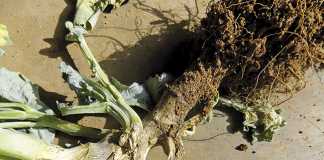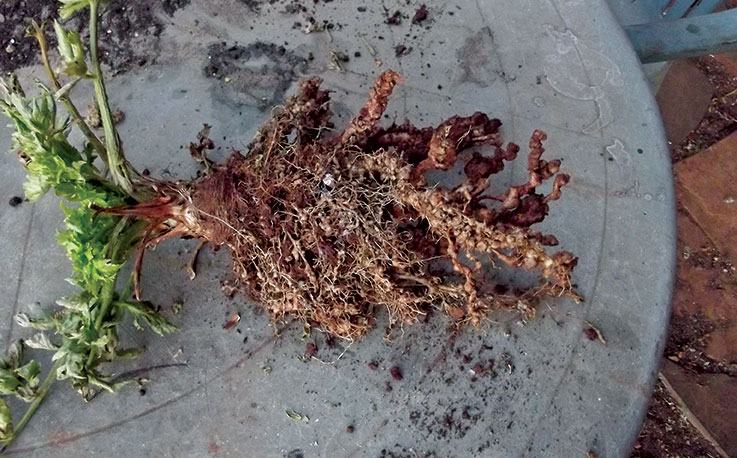
Photo: Bill Kerr
Most would like to see a legume followed by a leaf crop, followed by a root crop, and so on, for as many different species as possible. This seems to be common sense, but in fact it can go horribly wrong.
The starting point is to analyse your reasons for crop rotation in the first place. The reason should be that practicing complete or partial monoculture may increase a pest or pathogen which would be a limitation on following crops. If this isn’t a concern, or the pest or pathogen can be economically and effectively controlled, then there is no problem with monoculture.
Some farmers practice “automatic” crop rotation, thinking that using diverse species puts them on safe ground. Let’s take an example. You might start with a leaf crop like Swiss chard, part of the genus Beta. To play safe, you’ll follow up with a root crop like carrots, from the genus Daucus. To complete the theoretically perfect formula, you follow with a legume like green beans, from the genus Phaseolus.
All these crops are totally unrelated. So what’s the problem? Eelworm. All are host to root knot eelworm. In most cases, by the time you get to the beans, the eelworm population will be so high that the crop will be uneconomical without fumigation.
Even unfumigated carrots following spinach could be a huge problem where root knot eelworm occurs. It takes a fairly low eelworm population to substantially damage carrots, as it’s the roots which are marketed.
However, if you have a beet cyst eelworm problem, the chemical control measures for this difficult pest would virtually eliminate any root knot eelworm, and the above-mentioned rotation could be very successful.
Yes, the Swiss chard would build up the cyst eelworm population, but neither the carrots nor the beans are host to this eelworm, so it would be a good rotation.
Keep your soil healthy
Because of current labour legislation, many vegetable farmers are specialising in one or only a few crops, because growing larger areas of specific crops makes mechanisation more viable and cuts out as much labour as possible.
These farmers have to pay more attention to crop rotation in order to select crops which won’t build up a common pest or pathogen.
In this case, the more you have to return to the same species, the more important it is to build up the soil quality. Soil with a good physical and organic life status will be better able to withstand disease and eelworm.
In my soil, Rhizoctonia used to be a problem when I grew carrots, but was completely eliminated by using manures and no-till. Thanks to these measures I never get Phytopthera capsici on my peppers no matter how much it rains. Root knot eelworm, which was a huge problem before, has also disappeared.
Minimising tillage conserves humus and helps maintain soil structure and the correct balance of soil organisms. Manures and compost also make a huge difference.
Once the soil becomes balanced and healthy, you can follow with the same crop far more often. I used to plant cabbages in the same soil year after year for nine years in Mpumulanga, and my predecessors did likewise for many years before. Our yields continued to rise, the soil was in good condition and no pest built up to a limiting level.
I also plant my tomato trials in the same soil year after year without fumigation and without problems, and the soil has an excellent organic status and is only tilled to the depth accomplished with hand-hoeing.
Think carefully
The bottom line is that you should think out your rotation and observe the results. What works for one farmer or land may not work for another. Climate and soil type also play a role.
Follow up with the same crop if it’s more profitable. However, be sure to watch carefully for danger signs.
A crop chemical may even solve the problem more profitably than having to rotate with a less desirable species. Common sense is the most useful tool in your arsenal.



